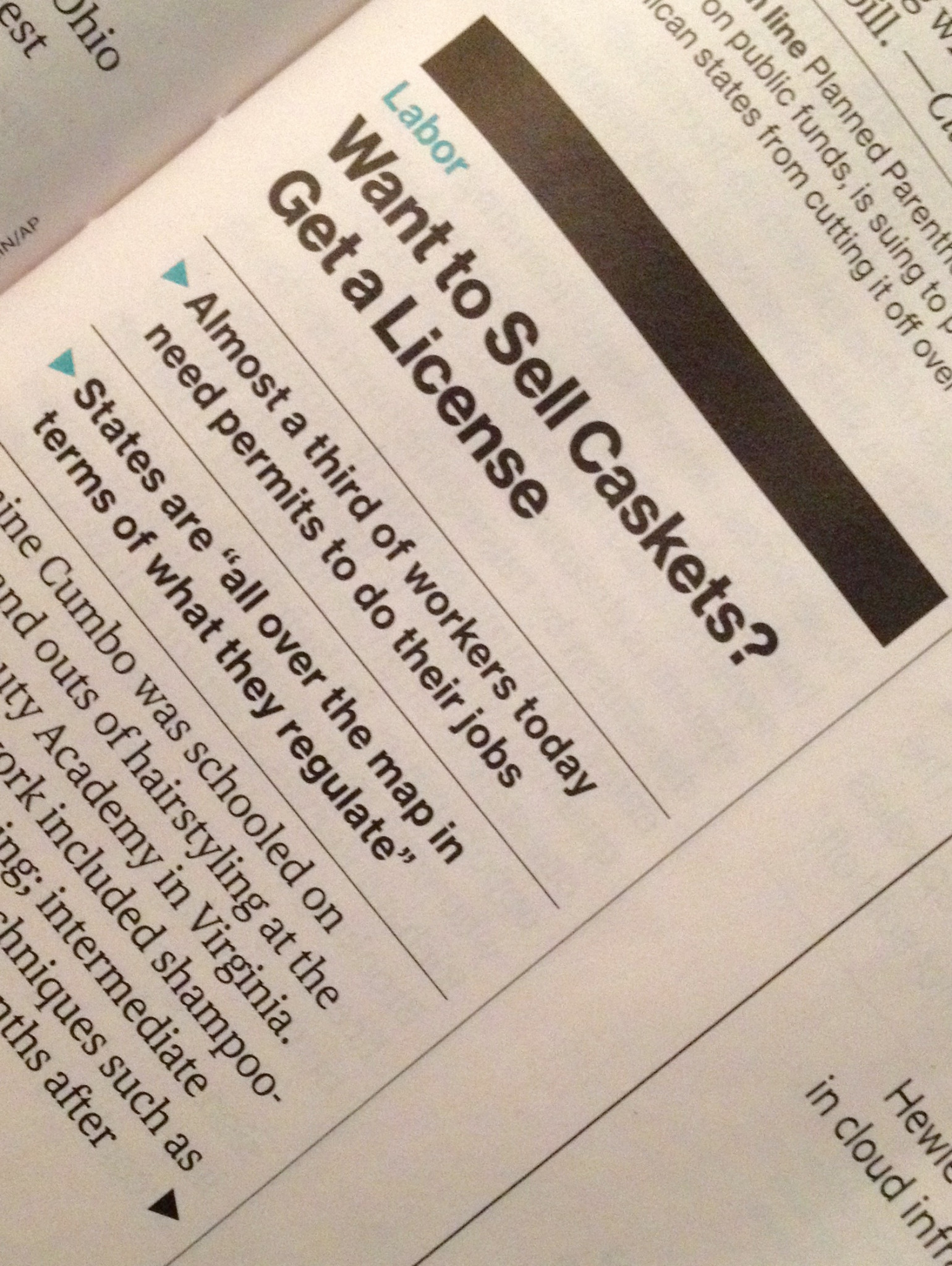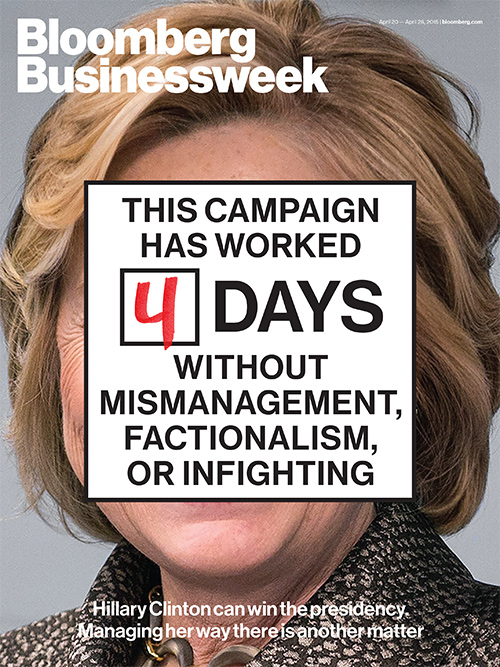 The latest issue of Bloomberg Businessweek features an article headlined “Want to Sell Caskets? Get a License.” It’s companion article to Sho Chandra’s online piece about the problems associated with occupational licensing restrictions.
The latest issue of Bloomberg Businessweek features an article headlined “Want to Sell Caskets? Get a License.” It’s companion article to Sho Chandra’s online piece about the problems associated with occupational licensing restrictions.
Licensing has spread inexorably through the U.S. labor market — a trend in some ways the direct opposite of the freelancing, anything-goes economy exemplified by Uber. In the 1950s, only about 5 percent of workers needed permission from federal, state or local authorities to practice their occupation. Now it’s almost a third — not just doctors or airline pilots, but florists, exotic dancers, tour guides, auctioneers and bartenders.
From the Obama administration to conservative-leaning think-tanks, a rare consensus is emerging on the need to fix a system originally intended to protect consumers and ensure public safety. Critics say it’s turned into something less benign, draining the job market’s dynamism and shielding well-off workers from competition while blocking the prospects of those lower down the wage scale.
“These are very high fences,” said Morris Kleiner, a professor of labor economics at the University of Minnesota who’s studied the issue for more than four decades. “It’s good for the people who become licensed,” but for society overall, “the costs are greater than the benefits.” Among those costs, he says, are 2.8 million missing jobs, as well as higher prices.
While President Barack Obama ordered up a report and set aside money in last year’s budget to address the problem, it’s not one that can be solved in Washington alone: The restrictions are mostly imposed at the state level with the encouragement of the licensed workers themselves, who vigorously defend the system they helped create.
The result is a “weird patchwork quilt of licenses,” said Brink Lindsey of the Cato Institute, a pro-market research center in Washington. Many rules have never undergone detailed scrutiny, and the authorities are “all over the map in terms of what they regulate and how they regulate,” he said.



